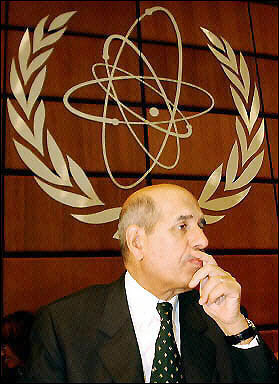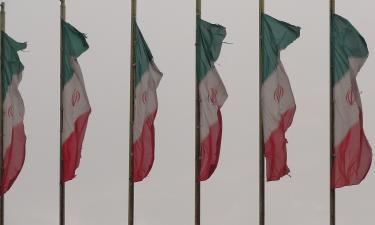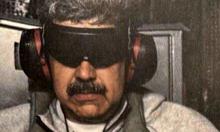Inspection of Iranian nuclear facilities hardly a surprise to anybody
 International Atomic Energy Agency has recently started an inspection of Iran's nuclear facilities. Though no advance notice was sent to the Iranian authorities prior to the inspection, it is not an unexpected event. Besides, such inspections should be carried out by the IAEA experts without any advance notice pursuant to an additional protocol to the Nuclear Weapons Nonproliferation Treaty. The period of inspection is from June 7th to June 18th, no surprise with regard to timing either. A meeting of the IAEA Board of Governors is scheduled for June 13th. The presidential election should be held in Iran on June 17th. The results of the ongoing inspection will undoubtedly have an impact on both the events.
International Atomic Energy Agency has recently started an inspection of Iran's nuclear facilities. Though no advance notice was sent to the Iranian authorities prior to the inspection, it is not an unexpected event. Besides, such inspections should be carried out by the IAEA experts without any advance notice pursuant to an additional protocol to the Nuclear Weapons Nonproliferation Treaty. The period of inspection is from June 7th to June 18th, no surprise with regard to timing either. A meeting of the IAEA Board of Governors is scheduled for June 13th. The presidential election should be held in Iran on June 17th. The results of the ongoing inspection will undoubtedly have an impact on both the events.
According to resolution of the Board of Governors, this time the IAEA experts are going find out whether Iran is fulfilling its obligations regarding a temporary cessation of the uranium enrichment program. There is a serious reason behind the inspection.
EU-3 i.e. Great Britain, France, Germany made a promise to Iran that a new plan for resolving the problem of “Iranian nuclear dossier” would be unveiled in late July or early August . The promise was made during the latest extraordinary round of talks in Geneva between Iran and above three EU nations. In return, the Europeans demanded that Iran extend its ban on uranium enrichment up to 2 months.
Tehran agreed to take up such an obligation. However, lately the Iranian authorities have repeatedly said about their intentions to cancel the ban. Iranian parliament made a similar statement a few days ago. The deputies filed an official letter to the Iranian president whereby they requested a resumption of non-military nuclear development program. Iranian politicians appear to be in a clash on the issue. The situation may jeopardize the Geneva arrangements. Therefore, the time has come to check things out “on location.”
There is one more important detail pertinent to the ongoing inspection. The election of a new director general of the IAEA was postponed until June at the request of the United States during the latest meeting of the Board of Governors held in April. The Washington representative at that meeting was the only one who strongly objected to reelection of the incumbent Director General Mohamed El Baradei to a third term of office.
USA dislikes Dr. El Baradei, and with reason. According to Washington, his attitude toward Iran is “too soft.” By putting off the election until June, the U.S. is hoping to gain time and get support of other countries' representatives on the Board of Governors while handpicking another alternative candidate to ensure the defeat of Dr. El Baradei.
The context of the upcoming talks between U.S. Secretary of State Condoleeza Rice and Dr. El Baradei can be easily anticipated. “We are going to discuss his viewpoints on issues related to IAEA's plans for the next several years which will be really crucial,” said Secretary Rice. The Iranian nuclear development program will be one of the key issues to be raised during the talks, according to Secretary Rice.
Let us assume that the IAEA inspectors will find some evidence showing that Iran has violated the ban on its uranium enrichment program. We can also assume that no evidence whatsoever will be found. The outcome of the inspection will definitely impact on the talks between the IAEA Director General and U.S. Secretary of State. It will also have an impact on Dr. El Baradei's chances for reelection. At the moment it is rather difficult to foresee what kind of stance on the nuclear problem Iran is going to take in the future because Iranian high-ranking officials obviously tend to back out of the deals made through negotiation.
Iran is well aware of America's position on the issue, no doubts about. The Americans have long been dreaming to catch Iran red-handed with its nuclear capability so that the Iranian nuclear dossier could be submitted to the UN Security Council and sanctions be imposed in consequence. Sometimes Iran seems to be deliberately instigating the EU-3 and the U.S. (that pulls strings backstage during the talks) to take tougher steps. Why are the Iranians showing such defiance? Can it be explained by their full confidence in the infallibility of their nuclear policy?
The explanation seems far-fetched. Neither USA nor IAEA nor EU-3 nor Russia is happy now about the situation created in the past when the IAEA failed to officially prove the existence of military component in the Iranian nuclear development program as Iran failed to present irrefutable evidence showing that its nuclear program was for peaceful purposes only.
We can be certain that the Tehran authorities were expecting IAEA inspectors. Should the inspectors find “traces of uranium” in the Iranian centrifuges during their 12-day visit to Iran, the U.S. will have an effective tool (in the shape of the EU) for putting pressure on a future Iranian president.
Subscribe to Pravda.Ru Telegram channel, Facebook, RSS!




